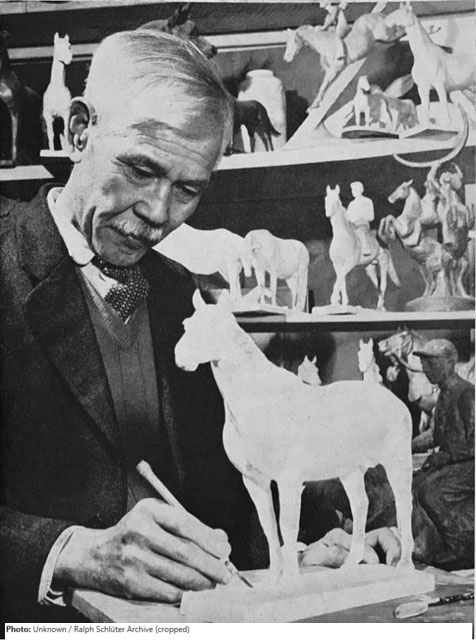
| Roles | Competed in Olympic Games |
|---|---|
| Sex | Male |
| Full name | Yuhachi•Ikeda |
| Used name | Yuhachi•Ikeda |
| Original name | 池田•勇八 |
| Born | 28 August 1886 in Ayauta district, Kagawa (JPN) |
| Died | 31 March 1963 (aged 76 years 7 months 3 days) in Nerima, Tokyo (JPN) |
| NOC |  Japan Japan |
Japanese sculptor Yuhachi Ikeda, born on Shikoku Island, was active in the Meiji and Showa eras. He mainly worked in wood and bronze. After attending the Kotohira crafts school, he was admitted to the sculpture class of the Tokyo School of Fine Arts as a student of Fumio Asakura. His Horse won a first prize at the 1909 Bunten Exhibition and he regularly exhibited at the official exhibitions. Ikeda mainly produced animal sculptures, especially horses, goats and cocks statues and representations. The expression “Yuhachi Horse” was named for his works. He mainly worked in wood and bronze. Starting in 1919, Ikeda travelled several times to Korea and China to study Buddha statues. In 1932 and 1936, he took part in the Olympic Arts Competition. Towards the end of World War II, he was evacuated to Fujisawa, Kanagawa Prefecture. During this period, most of his prototypes and other material was damaged or destroyed.
Due to lack of sculpture material, Ikeda concentrated on wood carving in the first few years after the war. He returned to the Fine Arts Exhibition and organized several solo exhibitions. In 1963, he died suddenly from pneumonia in his home in Tokyo.
| Games | Discipline (Sport) / Event | NOC / Team | Pos | Medal | As | |
|---|---|---|---|---|---|---|
| 1932 Summer Olympics | Art Competitions |  JPN JPN |
Yuhachi Ikeda | |||
| Sculpturing, Unknown Event, Open (Olympic) | ||||||
| Sculpturing, Unknown Event, Open (Olympic) | ||||||
| 1936 Summer Olympics | Art Competitions |  JPN JPN |
Yuhachi Ikeda | |||
| Sculpturing, Reliefs, Open (Olympic) | ||||||
| Sculpturing, Unknown Event, Open (Olympic) |